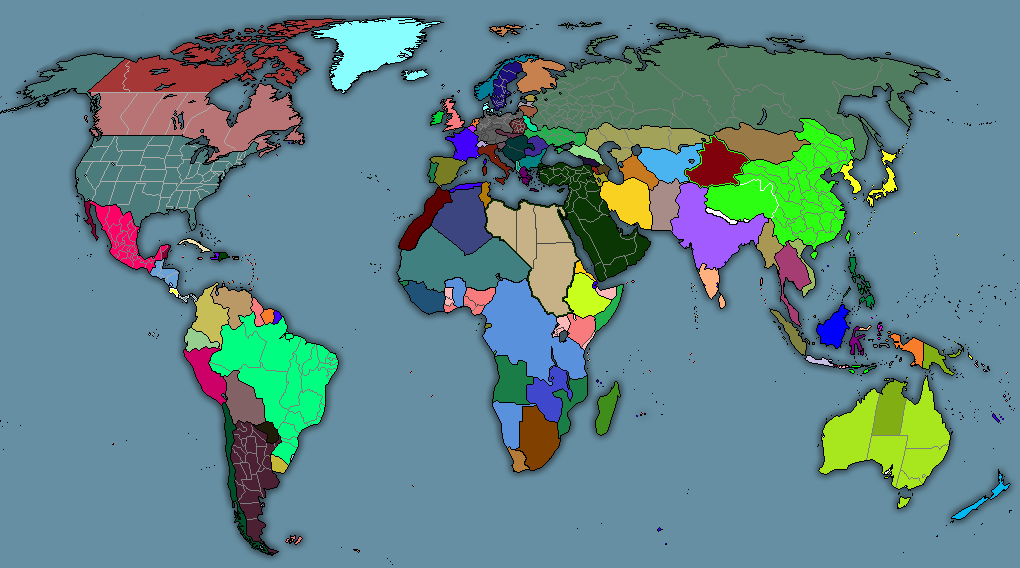Peace is a natural effect of trade.
(Charles de Montesquieu)
As Christmas 1949 was drawing close, the Ottoman Rocket Deal affair rocked Germany. It even overshadowed the very successful Raumschrat-2 mission. – Unlike in the Raumschrat-1 mission, no great height was attained this time, but the space craft remained in a rather low orbit – and conducted a series of manoeuvres under radio guidance from the ground. That was in fact a huge step forward, as for the first time it was possible to steer a space vehicle along a free running of navigation points estabished by radio signals from earth. Beate Uhse, in her second mission, performed a miracle of precision – and after two days – Raumschrat-2 landed spot–on in the Central Pacific Basin.
But the media only registered the mission in passing. The Ottoman Rocket Deal affair – or scandal, as many were suggesting – was claiming the headlines and news broadcasts. – Looking for a means to employ their fission bombs, the Sublime Porte had asked to purchase German missiles. The rocket type chosen was the A8D, a two–stage liquid-fuel rocket with a payload of five metric tons and a maximum range of 4,500 kilometres. The A8D was mobile; it could be displaced on road or on rail. On the road, the launch convoy consisted of twenty-four vehicles, including seven trailers; on rail, a dedicated train of three hundred metres length was required.
The Schumacher Cabinet had agreed to the rocket deal without any serious misgivings. The Ottomans were trusted allies. Deployed on the territory of the Pan–Turan Commonwealth, the missiles could hit every point in the Russian Empire. The German economy would profit greatly from the deal: not only the rockets would be purchased, but also the road vehicles and the special trains. The Ottomans had asked for fifty rockets, it was a really big deal. – If one, however, had hoped to sweep proceedings under the rug, one hadn't reckoned with a whole gang of whistle blowers, well entrenched in the structures of the government apparatus.
That the DFU and the peace movement in general should object, didn't surprise nobody. But the DVP joined in immediately, objecting the proliferation of precious Germanic technology to impure heathens, who could be trusted to pursue nothing but insidious aims. The KPD didn't hesitate to protest as well. – And the left wings of both SPD and LDP were in uproar too. Even inside the Zentrum, many were questioning the wisdom of the deal. After all, the Turks were no Christians, but wicked infidels. – Kurt Schumacher, on the other side, once he had made up his mind, was adamant to see the deal through.
The matter escalated within days. The nation was swept by protest marches and demonstrations, which quickly went violent. In Berlin, the centre of the storm, the Pussian police cracked down on the rallies in force. After two protesters had been killed within a short time – a girl was knocked down by a police armoured car; and a boy died after having been hit by police batons – the situation went ballistic. 'Berlin is burning!' cried the media, while the surge spread out over Germany. On Tuesday, December 20th, 1949, public order had broken down in Berlin, Leipzig, Dresden, Breslau, Stettin, Hamburg, Bremen, Hannover, Cöln, Münster, Frankfurt, Stuttgart, Munich and Vienna.
The police services and the fire brigades were fully stretched in what later would be known as 'Schumacher's Bloody Christmas', but as families were actually gathering to celebrate Christmas Eve and the festive period following, the fracas eventually died down to a level they could cope with. If public peace wasn't preserved totally, at least the level of arson and heist dropped considerably. – But it was only a truce. "We'll be back for New Year's Eve!" blared out the peaceniks. "And this time, the fireworks will be for real!"
(pretty please?)
(pretty please?)

